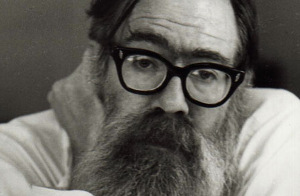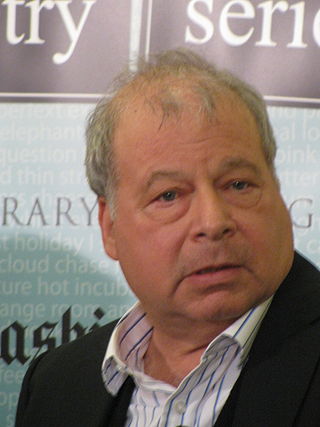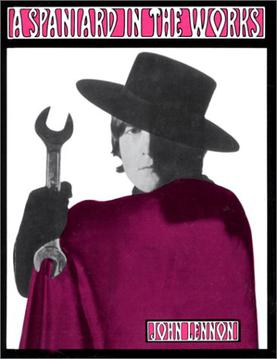
In addition to the Beatles' films A Hard Day's Night (1964), Help! (1965), Magical Mystery Tour (1967), Yellow Submarine (1968) and Let It Be (1970), Ringo Starr also acted in films such as Candy (1968), The Magic Christian, Blindman (1971), Son of Dracula (1974) and Caveman (1981). Starr directed and appeared in Born to Boogie (1972), a concert film featuring Marc Bolan and T. Rex. For the 1979 documentary film on the Who, The Kids Are Alright, Starr appeared in interview segments with fellow drummer Keith Moon. He starred as Larry the Dwarf in Frank Zappa's 200 Motels (1971). His voice is also featured in Harry Nilsson's animated film The Point! (1971).

Farrar, Straus and Giroux (FSG) is an American book publishing company, founded in 1946 by Roger Williams Straus Jr. and John C. Farrar. FSG is known for publishing literary books, and its authors have won numerous awards, including Pulitzer Prizes, National Book Awards, and Nobel Prizes. As of 2016 the publisher is a division of Macmillan, whose parent company is the German publishing conglomerate Holtzbrinck Publishing Group.

Beatlemania was the fanaticism surrounding the English rock band the Beatles from 1963 to 1966. The group's popularity grew in the United Kingdom in late 1963, propelled by the singles "Please Please Me", "From Me to You" and "She Loves You". By October, the British press adopted the term "Beatlemania" to describe the scenes of adulation that attended the band's concert performances. By 22 February 1964, the Beatles held both the number one and number two spots on the Billboard Hot 100, with "I Want to Hold Your Hand" and "She Loves You", respectively. Their world tours were characterised by the same levels of hysteria and high-pitched screaming by female fans, both at concerts and during the group's travels between venues. Commentators likened the intensity of this adulation to a religious fervour and to a female masturbation fantasy. Among the displays of deity-like worship, fans would approach the band in the belief that they possessed supernatural healing powers.
Frederick Seidel is an American poet.

David Grossman is an Israeli author. His books have been translated into more than 30 languages.

Charles Kenneth "C. K." Williams was an American poet, critic and translator. Williams won many poetry awards. Flesh and Blood won the National Book Critics Circle Award in 1987. Repair (1999) won the 2000 Pulitzer Prize for Poetry, was a National Book Award finalist and won the Los Angeles Times Book Prize. The Singing won the 2003 National Book Award and Williams received the Ruth Lilly Poetry Prize in 2005. The 2012 film The Color of Time relates aspects of Williams' life using his poetry.

John Allyn McAlpin Berryman was an American poet and scholar. He was a major figure in American poetry in the second half of the 20th century and is considered a key figure in the "confessional" school of poetry. His 77 Dream Songs (1964) won the 1965 Pulitzer Prize for Poetry.

August Kleinzahler is an American poet.

Lydia Davis is an American short story writer, novelist, essayist, and translator from French and other languages, who often writes short short stories. Davis has produced several new translations of French literary classics, including Swann's Way by Marcel Proust and Madame Bovary by Gustave Flaubert.

A Spaniard in the Works is a nonsense book by English musician John Lennon, first published on 24 June 1965. The book consists of nonsensical stories and drawings similar to the style of his previous book, 1964's In His Own Write. The name is a pun on the expression "a spanner in the works".
"Can't Buy Me Love" is a song by the Beatles.

Jonathan Galassi has served as the president and publisher of Farrar, Straus and Giroux and is currently the Chairman and Executive Editor.

The Beatles: The Biography is the name of a 2005 biography of the 1960s rock band The Beatles written by Bob Spitz. It was first published by Little, Brown and Company on November 1, 2005.
Mark Gevisser is a South African author and journalist. His latest book is The Pink Line: Journeys Across the World's Queer Frontiers (2020). Previous books include A Legacy of Liberation: Thabo Mbeki and the Future of the South African Dream and Lost and Found in Johannesburg: A Memoir. His journalism has appeared in many publications, including The Guardian, The New York Times, Granta, and the New York Review of Books.

The Lost Books of the Odyssey is a 2007 novel by Zachary Mason, republished in 2010. It is a reimagination of Homer's Odyssey.

You Never Give Me Your Money is a book by author and music journalist Peter Doggett about the break-up of the English rock band the Beatles and its aftermath. The book was published in the United Kingdom by The Bodley Head in September 2009, and by HarperStudio in the United States in 2010. In the UK, it was subtitled The Battle for the Soul of The Beatles, while the subtitle for US editions was The Beatles After the Breakup.
John A. Glusman is vice president and executive editor at W. W. Norton and Company, the largest independent, employee-owned publisher in the United States, and the author of Conduct Under Fire: Four American Doctors and Their Fight for Life as Prisoners of the Japanese, 1941-1945.
Peter Doggett is an English music journalist, author and magazine editor. He began his career in music journalism in 1980, when he joined the London-based magazine Record Collector. He subsequently served as the editor there from 1982 to 1999, after which he continued in the role of managing editor. He has also contributed regularly to magazines such as Mojo, Q and GQ.

Catherine Lacey is an American writer.

The Beatles: The Authorised Biography is a book written by British author Hunter Davies and published by Heinemann in the UK in September 1968. It was written with the full cooperation of the Beatles and chronicles the band's career up until early 1968, two years before their break-up. It was the only authorised biography of the Beatles written during their career. Davies published revised editions of the book in 1978, 1982, 1985, 2002, 2009, and 2018.















